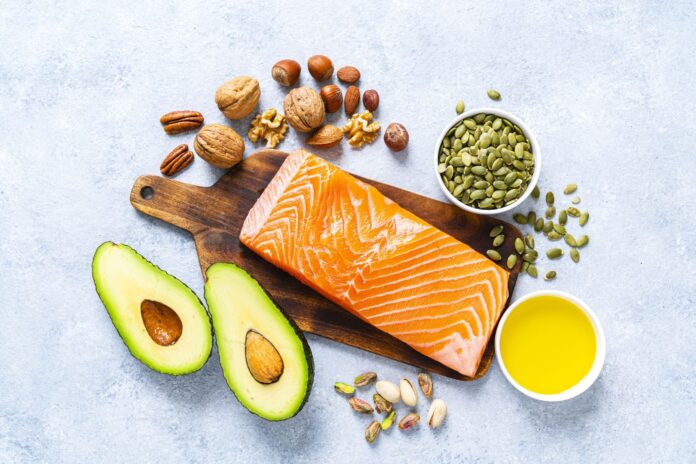Losing weight can feel like an uphill battle, filled with challenges that often hinder progress.
Many people unknowingly make mistakes that derail their efforts, leaving them frustrated and disheartened.
Identifying these pitfalls is essential to improving success and achieving sustainable weight loss results.
Dietary Mistakes
The road to successful medical weight loss often begins with dietary adjustments. However, even with the best intentions, people frequently make mistakes that can hinder progress.
These missteps often revolve around the types of food consumed, the balance of nutrients, and daily eating habits.
Not Eating Enough Fiber
Fiber is one of the most overlooked components of a weight loss-friendly diet, yet it is critical for overall health and success in shedding pounds. Foods high in fiber not only promote digestion but also create a feeling of fullness, which helps curb overeating.
Without adequate fiber intake, hunger may strike more frequently, leading to snacking and consuming unnecessary calories.
Moreover, fiber supports gut health by promoting the growth of beneficial bacteria, which play a role in digestion and nutrient absorption.
Aiming for the recommended daily intake of fiber not only helps with weight loss but also improves digestion, reduces bloating, and contributes to overall well-being.

Overlooking Hydration
Hydration is often underestimated as a tool for weight loss, yet it plays a pivotal role in metabolic processes and appetite control.
Water is essential for numerous bodily functions, including digestion, temperature regulation, and energy production. However, many people mistake thirst for hunger, leading to unnecessary calorie consumption.
Drinking water throughout the day can prevent this misinterpretation and help regulate appetite.
Replacing sugary beverages with water or unsweetened herbal teas further aids weight loss by cutting down on empty calories. Additionally, adequate hydration supports physical activity by maintaining energy levels and enhancing endurance.
For optimal results, aim to drink at least eight glasses of water daily, adjusting based on activity level and climate. Hydration is a simple yet effective way to stay on track with weight loss goals.
Avoiding Fats Completely
In the quest for weight loss, many people make the mistake of completely eliminating fats from their diet. While it’s true that certain types of fats, such as trans fats, should be avoided, healthy fats are essential for the body to function properly.
Nutrients like vitamins A, D, E, and K require fat for absorption, and fats also contribute to feelings of satiety, which can prevent overeating.
Healthy fats found in foods like avocados, nuts, seeds, olive oil, and fatty fish provide a range of benefits. They support brain function, improve heart health, and help regulate hormones.
Cutting fats out entirely can lead to cravings, energy dips, and even nutritional deficiencies.
Instead of fearing fats, it’s better to focus on including sources of unsaturated fats in moderate amounts. Balance is the key to benefiting from fats while still achieving weight loss goals.

Following Overly Restrictive Diets
Extreme dieting is one of the most common pitfalls in weight loss. The allure of quick results often tempts people into adopting restrictive plans that eliminate entire food groups or slash calorie intake drastically.
While this approach may yield short-term results, it is rarely sustainable. The body needs a range of nutrients to function optimally, and depriving it often results in cravings and binge eating.
Instead of restrictive diets, a balanced approach that incorporates all food groups in appropriate portions is far more effective. Balanced eating ensures the body gets the energy and nutrients it needs while allowing for slow and steady weight loss.
Additionally, flexible eating plans are easier to maintain over the long term, making them ideal for sustained success. Prioritizing a variety of nutrient-dense foods can help create a sustainable routine that doesn’t feel like deprivation.
Consuming ‘Diet’ Foods
Foods marketed as “diet” or “low-fat” are often seen as a safe choice for weight loss. However, these products can be misleading. Many of them contain hidden sugars, artificial additives, or unhealthy substitutes that negate their perceived benefits.
For instance, low-fat yogurts often contain high levels of sugar to compensate for the lack of flavor from reduced fat.
Opting for whole, unprocessed foods is a smarter choice for weight loss. These foods are more nutrient-dense and help keep hunger at bay. Reading labels carefully and being mindful of hidden ingredients can prevent falling into the trap of consuming “diet” foods that hinder progress.
Choosing real, wholesome ingredients over heavily processed products is a step in the right direction for both weight loss and overall health.

Eating Too Many or Too Few Calories
One of the biggest challenges in weight loss is finding the right balance of calories.
Consuming too many calories leads to weight gain, while eating too few can have the opposite effect, slowing down metabolism and making it harder to shed pounds.
Many people either overestimate or underestimate their caloric needs, which can derail their efforts.
It’s important to calculate daily calorie needs based on individual factors like age, activity level, and weight loss goals. Tools such as calorie-tracking apps can help ensure that intake aligns with these goals.
Eating within a healthy range helps the body burn fat while preserving energy levels and muscle mass. Striking a balance is key to avoiding extremes that can stall progress.
Exercise Mistakes
Physical activity is a vital component of any weight loss journey, but it is not just about moving more—it’s about moving smarter. Exercise mistakes, whether by overexertion or neglect, can significantly hinder progress. Understanding how to approach physical activity in a balanced and effective way ensures that weight loss efforts yield long-term results without unnecessary frustration.
Not Exercising or Exercising Too Much
A sedentary lifestyle is a common barrier to weight loss. Without regular movement, the body’s metabolic rate slows, and muscle mass begins to decline. This combination can make it harder to burn calories and achieve fat loss.
On the other hand, over-exercising, while seemingly productive, can cause physical and mental stress. Excessive workouts often lead to fatigue, burnout, and even injuries, making it difficult to maintain a consistent routine.
The key lies in finding a middle ground. Scheduling rest days is equally important, as it allows the body to recover and prevents exhaustion. A well-rounded routine promotes fat loss, builds muscle, and supports overall well-being without overwhelming the body.

Not Lifting Weights
Many people prioritize cardio exercises, such as running or cycling, while neglecting resistance training. While cardio is effective for burning calories, resistance training is equally, if not more, important for long-term fat loss. Building muscle increases the body’s resting metabolic rate, meaning more calories are burned even when not actively exercising.
Neglecting weightlifting leads to missed opportunities for optimizing fat loss and overall fitness. Resistance training doesn’t have to mean lifting heavy weights in a gym.
Bodyweight exercises, resistance bands, or lighter weights can be just as effective, especially for beginners. The goal is to include activities that challenge muscles, improve strength, and boost metabolic efficiency.
Overestimating Calories Burned During Exercise
Many individuals believe that workouts burn more calories than they actually do. This misconception often results in overeating, as people justify indulgences by assuming they’ve offset them through exercise.
However, this overestimation can quickly derail progress by eliminating the calorie deficit required for fat loss.
Accurately tracking calories burned during exercise can help manage expectations and align eating habits with weight loss goals.
Tools like fitness apps, wearable trackers, or heart rate monitors offer a more realistic estimate of energy expenditure. It’s also important to remember that exercise alone may not be enough to create a significant calorie deficit—dietary adjustments are equally crucial.

Behavioral and Psychological Mistakes
Achieving weight loss involves more than just dietary changes and physical activity. Behavioral and psychological factors play an equally important role, often acting as barriers to progress.
Addressing these mental and emotional aspects is essential for a sustainable journey toward a healthier lifestyle.
Focusing Only on the Scale
One of the most common mistakes in weight loss efforts is placing too much emphasis on the scale as the sole indicator of progress. While weight is a measurable factor, it is not always the most reliable marker of success.
Weight can fluctuate daily due to factors like water retention, hormonal changes, and even digestive patterns. These variations can create unnecessary frustration, leading to loss of motivation or even abandoning goals altogether.
Instead of fixating on the scale, individuals should broaden their perspective and track other indicators of progress. For example, noticing how clothes fit more comfortably, observing improvements in physical endurance, or taking body measurements can provide a fuller picture of success.
Not Getting Enough Sleep
Sleep is an often-overlooked yet critical factor in weight loss. Adequate rest not only allows the body to recover but also plays a key role in regulating hunger and satiety hormones like ghrelin and leptin. When sleep is disrupted, these hormones become imbalanced, causing increased cravings and appetite, particularly for high-calorie, sugary foods.
Chronic sleep deprivation can also impact metabolism and energy levels, making it harder to engage in regular physical activity or maintain focus on weight loss goals. Studies have consistently linked insufficient sleep with higher body weight and difficulty losing fat.
To avoid these pitfalls, individuals should prioritize seven to eight hours of quality sleep each night. Establishing a consistent bedtime routine, limiting screen time before bed, and creating a comfortable sleep environment can greatly improve sleep quality and support overall health.

Stress Levels
Stress is a silent saboteur in many weight loss journeys. When the body experiences prolonged stress, it releases cortisol, a hormone that can increase fat storage, especially around the abdomen. Elevated cortisol levels also trigger cravings for comfort foods, leading to emotional eating and a surplus in calorie consumption.
Stress can also drain motivation, making it harder to stick to exercise routines or maintain a balanced diet. Managing stress effectively is therefore essential for achieving weight loss goals.
Techniques such as mindfulness meditation, yoga, and deep breathing exercises can help calm the mind and lower cortisol levels. Additionally, setting aside time for enjoyable activities and prioritizing self-care can reduce stress and improve overall well-being.
Summary
Achieving weight loss requires careful consideration of dietary, physical, and behavioral factors.
By addressing common pitfalls and making sustainable lifestyle changes, long-term success becomes more attainable and rewarding.







